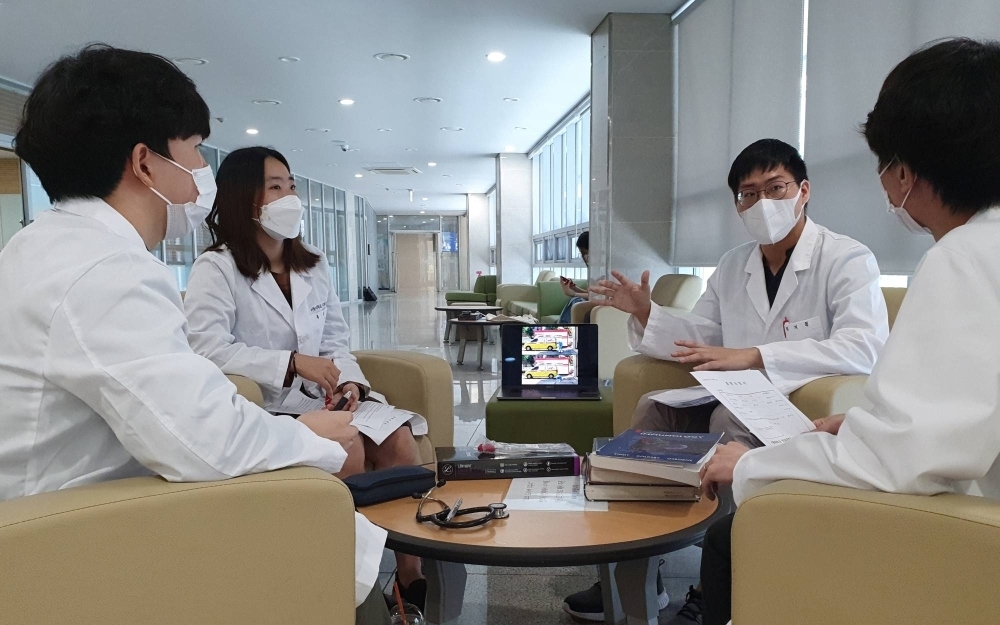Đôi bên “Stand their Ground”

Sinh viên y khoa Hàn Quốc. Ảnh: Reuters.
The recent doctors’ strike in South Korea has prompted intense debate and a firm response from the government. President Yoon Suk Yeol, in a televised address to the nation, affirmed the government’s plan to increase the medical school admission quota by 2,000 spots starting in 2025. Despite this, he expressed readiness to engage in negotiations with the protesting doctors. Both sides seem determined to hold their ground, leaving little room for compromise.
The Doctors’ Perspective
The striking doctors have been demanding a reduction in the planned increase of medical school admissions. President Yoon suggested that the doctors should present a unified proposal, supported by strong scientific evidence, rather than resorting to collective action. He emphasized that the additional 2,000 admissions were a minimum requirement to fulfill constitutional responsibilities of protecting citizens’ lives and safety and adapting to the rapidly aging society. The government is open to considering alternative solutions as long as they are well-founded and logical.
The Government’s Stance
President Yoon reaffirmed the government’s commitment to expanding medical education facilities and reforming the healthcare system. The policies being implemented will follow a systematic and procedural approach, without being hindered by vested interest groups. He emphasized that the government’s aim is to strengthen the healthcare sector, and it is determined to pursue its plans regardless of the ongoing strike.
Implications and Opposition
The strike has caused significant disruption, with over 13,000 intern doctors participating nationwide for over five weeks. The Ministry of Health recently announced that it would temporarily suspend training for striking doctors who fail to return to work by tomorrow (April 2nd). However, the striking doctors argue that increasing medical school admissions will lead to the collapse of the healthcare system.
Prominent figures in the medical community, including the Korean Medical Association, share this perspective. Professor Kim Chang-soo, the president of the association, agrees that expanding the number of medical school admissions will not only damage the educational system but also jeopardize the country’s healthcare system. He warns that if punitive measures are implemented against striking doctors, voluntary resignations of senior medical professionals are likely to occur.
In support of the strike, senior professors at major university hospitals have already submitted their resignations, while community doctors have announced a reduction in working hours to 52 hours per week, starting today (April 1st).
The conflict between the government and the doctors shows no signs of resolution at this time. Both sides remain firm in their positions, leaving the future of medical education and healthcare reforms uncertain.
Learn more about the latest business and finance news at Business Today.
